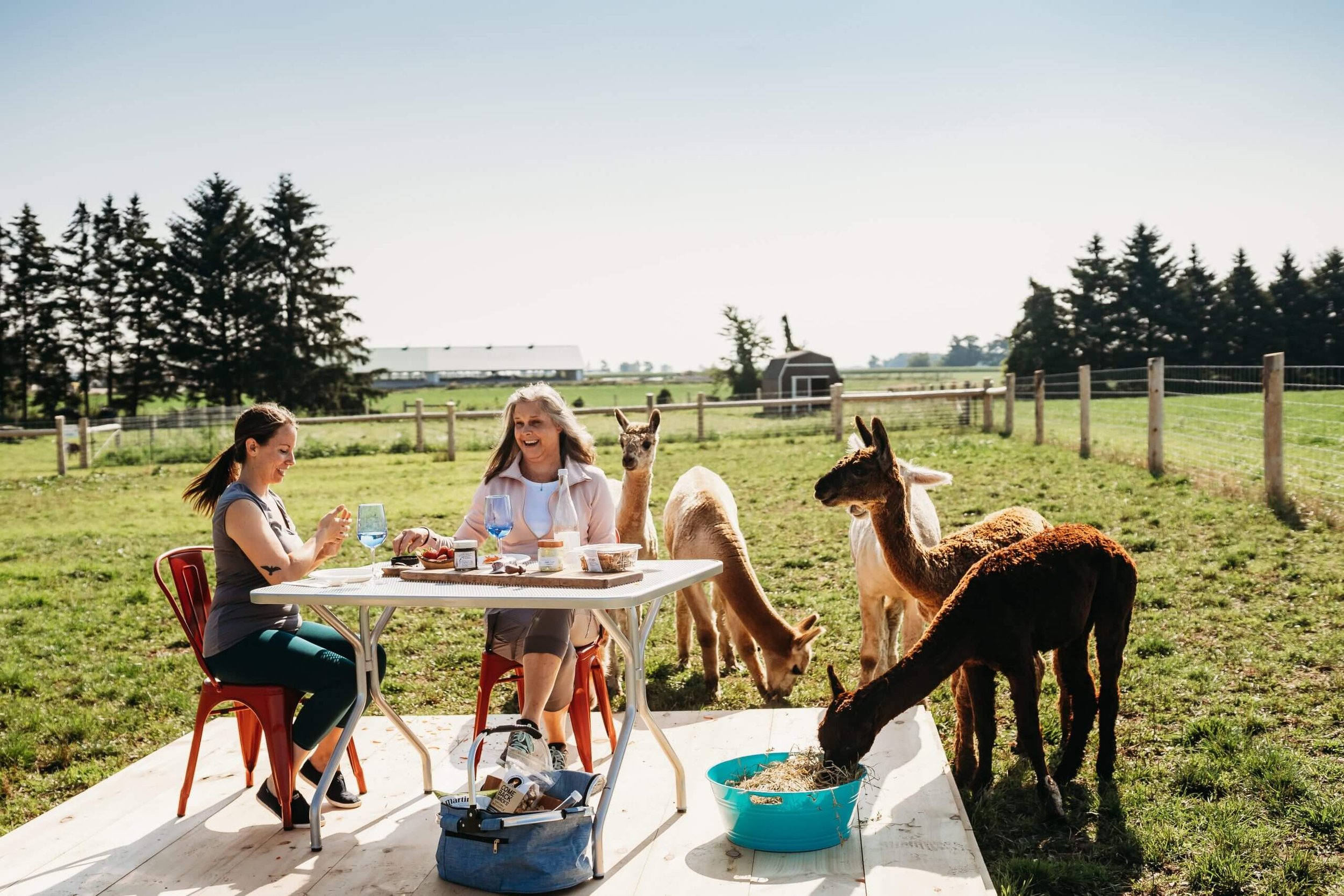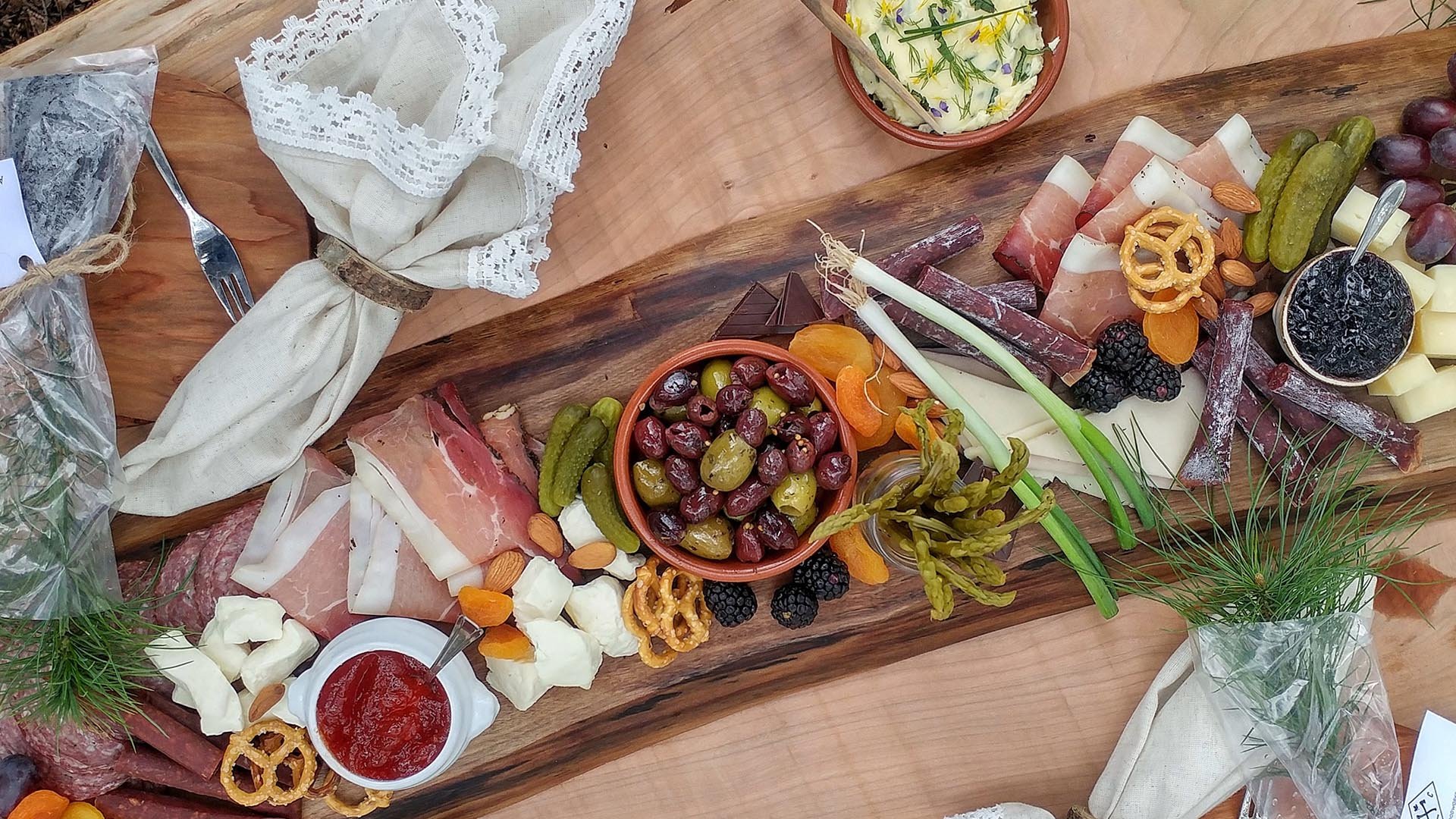
Case Study
How Atlantic Canada is Elevating Culinary and Agritourism: Insights from Our Best Practices Mission
JUNE 2024
Mission Overview
The Culinary Tourism Alliance hosted 18 tourism operators and destination managers from Atlantic Canada for a 4-day best practice mission across Southern Ontario.
The trip included visits to five farms, two craft beverage producers, nine restaurants, one immersive cooking experience and one food tour. Throughout the trip, delegates learned from business operators, destination managers, regional tourism operators and the Culinary Tourism Alliance team about the best practices for developing culinary and agritourism experiences. The trip emphasized how to develop partnerships, use storytelling to enhance visitor experiences and methods to incorporate sustainability into programming.
Itinerary & Key Takeaways
-
Stops:
Udderly Ridiculous Farm Life (Feast On® Certified) – Hands-on "Taste of Farm Life" experience, emphasizing farm education, animal interactions, and product diversification
SixThirtyNine Restaurant (Feast On® Certified) – Local food integration strategies & using certifications as a sustainability tool
Ottercreek Woodworks – "From Tree to Table" experience, showcasing how non-culinary businesses can incorporate food tourism for revenue diversification
Takeaways:
Agritourism enhances farm revenue while educating visitors
Non-traditional tourism businesses can successfully integrate food experiences
Regional collaborations, like Tourism Oxford’s Cheese Trail, drive tourism success
-
Stops:
13th Street Winery (Sustainable Winegrowing Certified) – Case study on visitor engagement, on-site experiences, and blending art, wine, and hospitality
Dispatch Restaurant (Living Wage Certified) – Discussion on workforce sustainability, fair wages, and innovative HR practices
Always June Organic Farm – Strategies for sustainable farming and building strong restaurant partnerships
Takeaways:
A diverse visitor experience extends time on site and increases spending
Living wage certifications enhance staff retention and brand credibility
Sustainable certifications (e.g., GreenStep, Feast On®) build consumer trust
-
Stops:
The Royal Hotel – Historic preservation and storytelling as a tourism attraction strategy
Edwin County Farms – Regenerative farming and its role in local food tourism
Wild Lot Farm Distillery – Expanding agritourism through experience layering (farm tours, tasting rooms, private events)
Littlejohn Farm – Scaling a farm-based business from B&B to a full-fledged culinary experience provider
Takeaways:
Storytelling is a critical differentiator in destination marketing
Visitors are drawn to experiences that connect them to local history, products, and people
Slow, sustainable growth allows businesses to test and refine offerings
-
Stops:
Maison Maitland Cooking School (Feast On® Certified) – The impact of partnerships in tourism product development
Kingston Food Tours – Case study on digital booking systems and tour packaging strategies
Frontenac Club – Workforce cross-training to address labour shortages in boutique hospitality
Black Dog Tavern & Visit Kingston – How Kingston uses Feast On® and other certifications to attract visitors and support local businesses
Takeaways:
Cross-training and flexible scheduling help small businesses manage workforce shortages
Online booking systems reduce friction in visitor engagement.
Municipal DMOs play a critical role in unifying and promoting local tourism

Outcomes
How the strategy has guided growth
A significant outcome of the Atlantic Canada Best Practices Mission was the strengthening of relationships between tourism operators, hospitality and tourism associations, and destination marketing organizations. These connections between participants fostered collaboration, paving the way for future partnerships and joint initiatives that have helped to enhance culinary tourism offerings in Atlantic Canada. In addition, participants were able to meet tourism operators and tourism professionals in Ontario and learn how they have approached culinary and agritourism. By networking with industry leaders and experiencing successful culinary tourism models firsthand, participants gained valuable insights into how culinary and agritourism experiences can be developed.
“This was the most impactful best practices mission I have been on. It was well managed and highly informative. I will be implementing practices that I learned from this mission into my business.”
— Chef Jason Lynch
The firsthand experience of best-in-class culinary tourism offerings allowed participants to bring fresh ideas back to their local communities. Tourism operators gathered inspiration for new culinary tourism experiences, such as farm visits, immersive food tours, and unique accommodations. Additionally, the Best Practices Mission provided participants with a clear understanding of the standards required for high-quality, market-ready culinary tourism experiences. By seeing these standards in action, they are able to better align their own offerings with industry expectations and standards. Understanding culinary and agritourism best practices will help to ensure that Atlantic Canada can enhance their reputation as a culinary hotspot.


